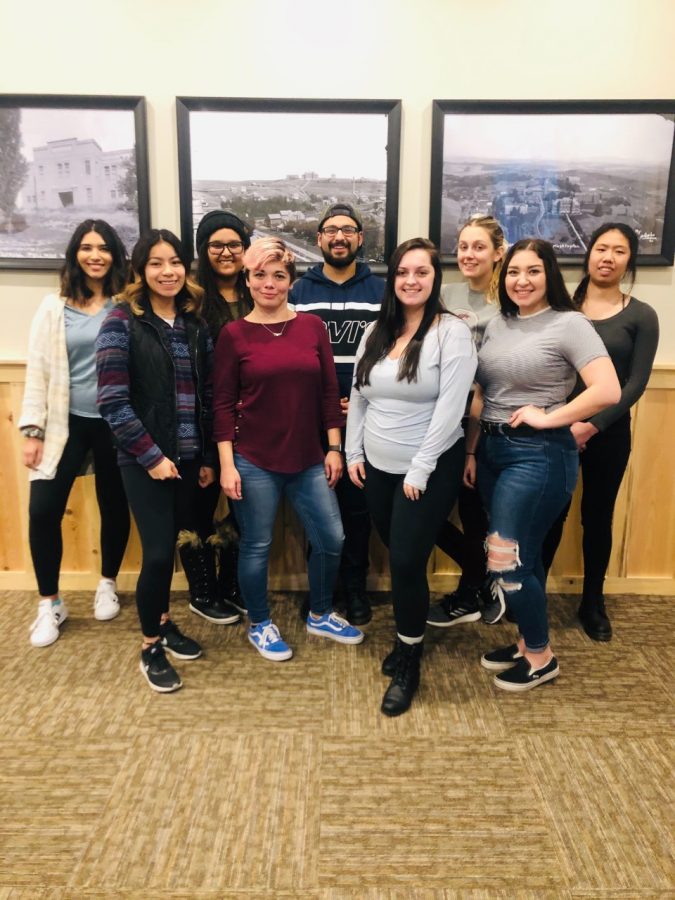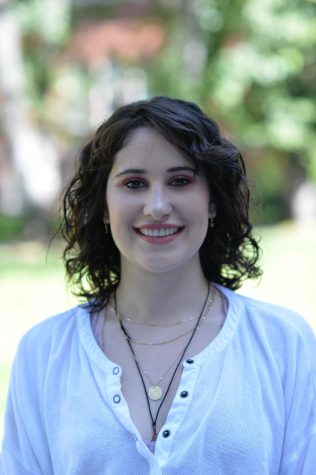Crimson Community Grants provide emergency funding for students
Emergency aid will continue to serve students even as university faces financial uncertainty, WSU official says
Kelly Demand and her team looked through grant applications. She said they “cut back” on the documentation required to file an application.
July 24, 2020
Nearly 800 students received funding from the Crimson Community Grant project, which distributed more than $500,000 worth of funding in partnership with BECU. Each recipient was given between $200 and $1,000.
“With your generosity, I will be able to continue my research from home,” wrote Azdren Coma, second-year sociology doctoral student, in a thank-you note to BECU donors. “I will be able to avoid risking my life in the near future, even after the campus reopens.”
Coma wrote that he and his wife welcomed the birth of their son on March 10, which was six days before Gov. Jay Inslee imposed the statewide shutdown. This emergency aid will help Coma keep his family safe while he works, he wrote in the letter.
The CCG offers aid money to students who did not qualify for CARES Act funding, CCG Project Director Kelly Demand said. The program also offers aid for undocumented students and DACA recipients.
“I’ve been here for five years, and it was pretty obvious immediately that there was a need for emergency grant aid long before COVID was around,” said Michael Highfill, Office of Academic Engagement executive director.
Students apply for funding through a portal. After the pandemic began to impact students, managers at CCG worked with WSU to establish one location that would take all funding requests, Highfill said.
After students fill out their emergency funding request form, a WSU financial committee decides on the appropriate area from which to take the emergency money, Highfill said.
“We are looking to get this money to students as fast as possible,” Demand said.
Though each situation is considered differently, Highfill said this grant is tailored for students at or below a household income of $10,000.
Only in-state students are eligible, Highfill said, but eligibility extends to undergraduate, graduate and professional students.
Students from low-income backgrounds often find it difficult to ask for financial assistance, said Mystique Demyers, CCG student peer adviser and third-year history and English double major also minoring in psychology.
“Sometimes people forget that every situation is unique,” Demyers said.
Demyers said financial pressure may convince students they cannot continue their education. Peer advisers help alleviate this stress, she said.
The BECU, which often partners with WSU organizations, signed on as a donor with the program two years ago, said Alex Pietsch, the associate vice president of the office of corporate relations. The CCG first gave funding to students last fiscal year.
“They have a strong belief as a credit union of supporting community,” Pietsch said.
Pietsch worked with Highfill to develop the proposal for BECU and potential WSU donors. They chose a “shared investment” that allows both community members and students to contribute, Highfill said.
“We’re not asking for donors to just give a straight gift; we’re saying if you contribute this much, we also have some university funds to match it,” Highfill said.
The CCG had a steady flow of applications before the pandemic, Demand said. However, it was not until March 2020 when applications from students who experienced sudden financial trouble poured in, Highfill said.
“It was so universal, [and] it affected everybody,” Highfill said.
Demand said she expanded her team and “cut back” on required documentation in order to manage the influx of new applicants.
“I don’t think a lot of people realize the impact that emergency funding can have on the longevity of a student’s education,” Demand said.
The CARES Act provided WSU with more than $10 million worth of emergency funding for students, and more than 8,000 students received nearly $9 million, according to the 45- day CARES funding report.
“Emergencies happen to everybody, and one of the things we combine with emergency grant aid is some education,” Highfill said.
As a peer adviser for the CCG, Demyers said she continuously updates her advisees on available online resources. She said the Office of Academic Engagement offers many paths for finding financial aid, and students should email Demyers if they want to get a peer’s advice.
“[Student peer advisers] understand their situation more — we’re kind of in a similar situation,” Demyers said. “We’re paying for our own bills on top of working and going to school … I can empathize that way with [advisees].”
Demand said she hopes more donations come in for the program to continue funding underserved students’ needs.
“And with [the CCG’s] help, I can feel relieved that not only will I be able to continue to work on my research well into the summer, but that I can also continue to keep my family safe through these difficult times,” Coma wrote in his letter.

















